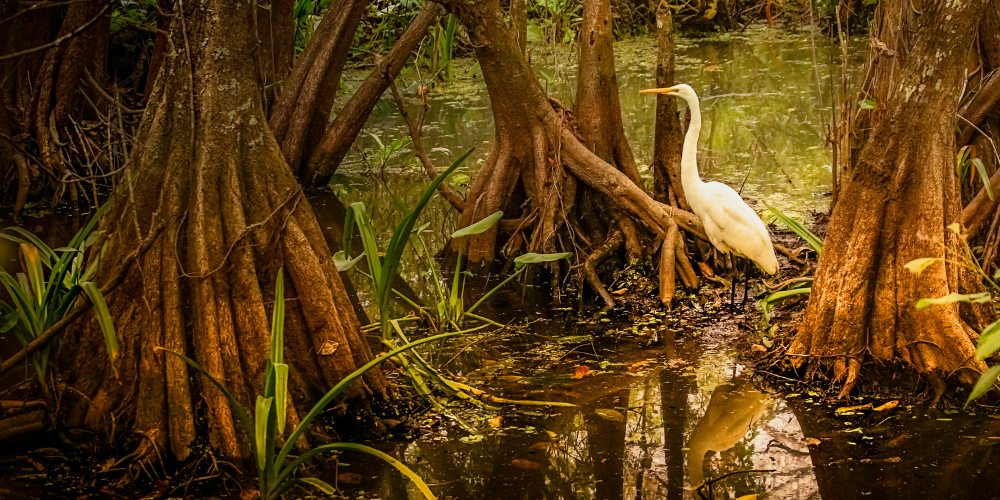All products were chosen independently by our editorial team. This review contains affiliate links and we may receive a commission for purchases made. Please read our affiliates FAQ page to find out more.
Waterfowl hunting is a sport that demands not only skill and patience but also the right gear to ensure a successful and enjoyable experience. Among the most crucial pieces of equipment are waders, which protect hunters from the elements and enhance their ability to move and stay in the water comfortably. This article delves into the various types of waders available, their materials, and how to choose the right pair based on seasonal needs.
Jump to:
Key Takeaways:
- Types of Waders: Hip, waist, chest, and full-body waders each offer different levels of protection and mobility.
- Material Choices: Neoprene and breathable materials like Gore-Tex have distinct advantages depending on weather conditions.
- Seasonal Considerations: Insulated waders for cold weather and lighter options for warmer seasons are essential for comfort and safety.
Types of Waders for Waterfowl Hunting
Hip Waders
Hip waders are ideal for shallow waters and provide ease of movement. They are a good choice for hunters who don’t venture far from the shore or use a duck boat.
Register for our latest in-depth reviews and product round-ups from the experts.
Enter your email address below to receive our monthly review emails.
By entering your details, you are agreeing to our terms and conditions and privacy policy. You can unsubscribe at any time.
Waist Waders
Waist waders offer a balance between protection and mobility. They are suitable for moderately deep waters and provide more coverage than hip waders.
Chest Waders
Chest waders are the most versatile and popular among waterfowl hunters. They offer the most protection and are suitable for various hunting environments.
Full Body Waders
Full body waders provide complete coverage and are best for extreme conditions. They are less common but offer the highest level of protection.
 Material Choices for Duck Hunting Waders
Material Choices for Duck Hunting Waders
Neoprene Waders
Neoprene waders are known for their durability and excellent insulation properties, making them a popular choice for cold weather hunting.
Breathable Waders
Breathable waders, often made from materials like Gore-Tex, are lighter and offer better mobility. They are ideal for warmer seasons or active hunting styles.
Seasonal Considerations in Wader Selection
Insulated vs. Uninsulated Waders
- Insulated Waders: Best for cold weather, providing warmth and comfort.
- Uninsulated Waders: Suitable for warmer seasons, offering more breathability.
Waders for Early Season Hunting
Lighter, breathable waders are preferable during the early season when temperatures are higher.
Mid-Season Wader Choices
As temperatures begin to drop, mid-season waders with moderate insulation are ideal.
Late Season Wader Options
For late-season hunting, heavily insulated waders are necessary to stay warm and dry in freezing conditions.
Advanced Features in Modern Waders
Waterproofing and Sealing Technologies
Modern waders come with advanced waterproofing and sealing technologies to keep hunters dry in all conditions.
Mobility and Comfort Enhancements
Features like adjustable straps, articulated knees, and ergonomic designs improve mobility and comfort.
Camouflage Patterns and Aesthetics
Waders are available in various camouflage patterns to blend into different hunting environments.
Maintenance and Care for Waders
Cleaning and Storage Tips
Proper cleaning and storage are crucial for extending the life of your waders. Rinse them with fresh water after each use and store them in a cool, dry place.
Repairing Damaged Waders
Minor damages can often be repaired with wader repair kits, ensuring your waders last longer.
Longevity and Wader Lifespan
With proper care, high-quality waders can last several hunting seasons.
Choosing the Right Waders: Factors to Consider
When selecting waders for waterfowl hunting, several factors come into play. Here’s a breakdown to help you make an informed decision:
Wader Design: Stockingfoot vs. Boot Foot
- Stockingfoot Waders: Require separate wading boots, offering more foot support but less convenience.
- Boot Foot Waders: Integrated boot design for ease of use, preferred for hunting specific scenarios.
Materials: Neoprene vs. Breathable Fabrics
- Neoprene: Offers excellent insulation and waterproofing, ideal for cold weather.
- Breathable Fabrics: Like Gore-Tex, provide better breathability and comfort in warmer conditions.
Style of Hunting
- Early Season Teal Hunts: Breathable waders are advantageous for comfort in warmer temperatures.
- Late Season Hunts: Insulated neoprene waders are better suited for cold weather conditions.
Insulation and Layering System
- Layering: Essential for adapting to varying temperatures, especially with breathable waders.
Durability and Warranty
- Durability: Depends on the material and construction quality.
- Warranty: Important for repair and longevity, especially for premium waders.
 Frequently Asked Questions
Frequently Asked Questions
Yes, except for field hunting and specific scenarios, waders are essential for most duck hunts.
- The longevity varies based on materials, construction, and usage. Premium waders can last several years with proper care.
Consider your hunting style, the typical weather conditions you hunt in, and the level of insulation needed.
Table: Wader Comparison by Season
| Season | Wader Type | Insulation | Material | Ideal Use |
| Early Season | Breathable | Light/None | Gore-Tex, Nylon | Warm weather, active hunting |
| Mid-Season | Versatile | Moderate | Mixed Materials | Transitional weather |
| Late Season | Insulated | Heavy | Neoprene | Cold weather, icy conditions |
Table: Wader Features and Their Benefits
| Feature | Benefit |
| Waterproof Seams | Prevents leaks, enhances durability |
| Adjustable Straps | Improves fit and comfort |
| Reinforced Knees | Adds durability in high-wear areas |
| Camouflage Patterns | Aids in blending with the environment |
| Breathable Material | Increases comfort in warmer conditions |
Tyler Bradford, the dynamic co-creator of Best Hunt Gear and a seasoned hunter, partners with Chester Jameson to elevate the platform. With his extensive knowledge of hunting techniques and gear, Tyler infuses innovative ideas and fresh perspectives. As Co-Chief Hunter, he enriches the hunting community with valuable insights and guidance for successful experiences in the wild.







